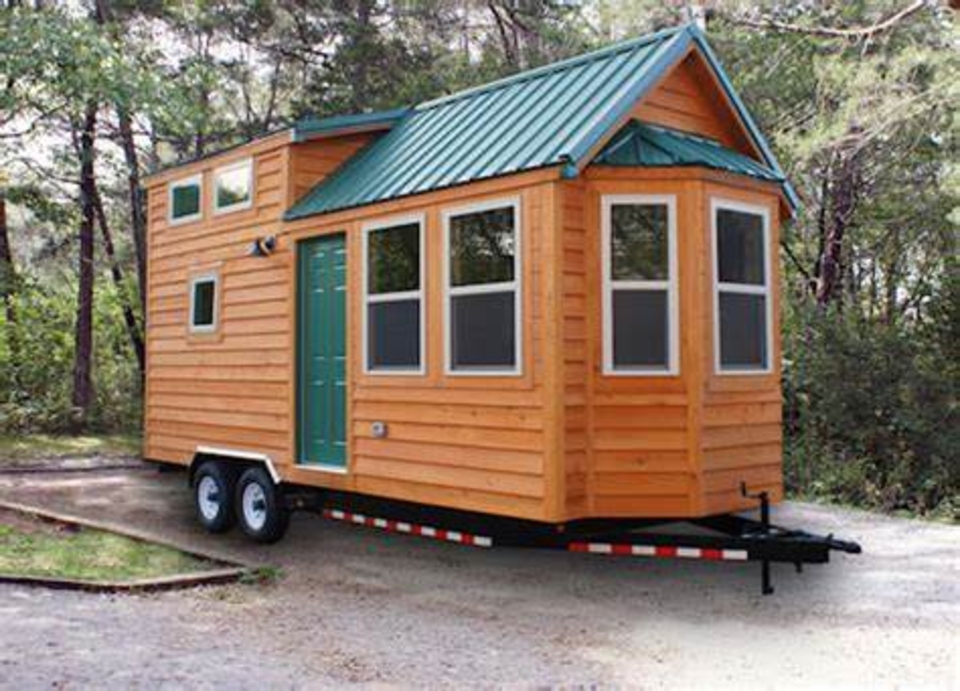
In the wake of a shifting housing need, the tiny house movement has grown in popularity across Canada, appealing to those seeking a simpler, potentially more affordable, and eco-friendly lifestyle. However, a critical question of safety has emerged in this burgeoning industry – specifically regarding the standards to which these homes are built.
It's become increasingly common for some tiny home builders to certify their homes under the CSA Z240 RV Standard, a Canadian standard designed for Recreational Vehicles. This practice is concerning because homes – even tiny ones – are intended for full-time residential living, whereas the RV standards are specifically designed for vehicles intended for seasonal and temporary use.
The Inherent Risks
The issue is that RV standards do not encompass the same rigorous building requirements expected for a full-time residence. An RV, by definition, is a vacationing vehicle, not meant to withstand the continuous wear and tear of year-round living and the Canadian weather climate. Its structural, insulation, and safety standards are markedly less comprehensive than those of a traditional home.
Tiny homes, if built to the less stringent CSA Z240 RV Standard, might not be robust enough for full-time habitation, especially in the face of Canada’s diverse and sometimes severe weather conditions. For instance, inadequate insulation can lead to cold drafts during winter, posing risks to the occupants' health and safety. Furthermore, the electrical and plumbing systems might not be designed to handle continuous use, leading to premature failure and potential safety and fire hazards.
The Case for Provincial Building Codes
Provincial building codes, on the other hand, are designed with full-time residences in mind. They address a wide array of safety aspects such as structural integrity, fire safety, HVAC, plumbing, electrical systems, and energy efficiency. These codes are continually reviewed and updated to ensure they incorporate the latest best practices, technologies, and understandings about health and safety.
A tiny home built and certified according to provincial building codes will ensure that it is safe, durable, and efficient, even when used for full-time living. Homeowners will have the assurance that their dwelling meets the rigorous standards expected of a permanent residence.
Protecting Consumers
The responsibility falls on us as an industry to ensure that consumers are making informed decisions about the homes they purchase. Customers looking to invest in a tiny home for full-time living need to understand that homes certified under the CSA Z240 RV Standard is not suitable or safe for this purpose.
In the interest of safety, we urge all tiny home builders to adhere to the stringent standards laid out by provincial building codes and applicable government authorities ensure that this policy is being adhered to. This not only ensures that the homes are safe for full-time residential use but also helps to maintain the integrity and professionalism of the industry.
Moreover, industry and government bodies must work together to create clearer regulations and guidelines for tiny home construction and certification, providing further protection for consumers.
In conclusion, while the appeal of the tiny house lifestyle is clear, safety should never be compromised. As such, it's essential that tiny homes are built to the standards that recognize and protect their status as full-time residences, namely, the provincial building codes.
The Role of Municipalities
It's essential that municipalities play their part in ensuring the safety and suitability of tiny homes for full-time living in their communities. They are uniquely positioned, both to enforce existing building codes and to advocate for the adaptation of these codes to encompass tiny homes more effectively.
Municipalities should be diligent in their enforcement of provincial building codes for all homes, regardless of size. It is incumbent on local government officials to ensure that tiny homes in their jurisdiction are not built to the much less stringent CSA Z240 RV Standards. Instead, they should insist that builders comply with provincial building codes that have been designed to ensure safety and efficiency in full-time residences.
In addition to this, municipalities should take a proactive role in shaping future policy around tiny homes. With the increasing popularity of this housing option, it's crucial to develop clear, tiny home-specific guidelines that ensure their safe construction and use as permanent dwellings.
By incorporating this advocacy into their mandates, municipalities can lead the way in ensuring that all residents, no matter how small their home, can live in safety and security. The onus is on these local government bodies to protect their citizens, and this includes those choosing to live in tiny homes.
In summary, through the diligent enforcement of existing codes and the shaping of future policy, municipalities can play a crucial role in ensuring that the tiny home movement is a safe and sustainable housing option for Canadians.
About the Canadian RV Association:
The Canadian Recreational Vehicle Association (CRVA) is a non-profit organization comprised of leading Recreational Vehicle Manufacturers and Suppliers of the components that go into Recreational Vehicles that are sold in Canada. CRVA has been in existence for over 45 years and works continually to promote all aspects pertaining to the quality and safety in the RVs built by its member companies.
The Association ensures a continuity of professional standards beneficial to the RV industry and, ultimately, in the best interest of the consumer.
In total, the RV sector directly and indirectly supported an estimated 67,200 jobs and delivered $4.8 billion in added economic value to the Canadian economy from an initial expenditure of $6.2 billion in 2019.
Contact: Shane Devenish, President - Canadian RV Association
Email: shane.devenish@crva.ca
Phone: 905 315 3156